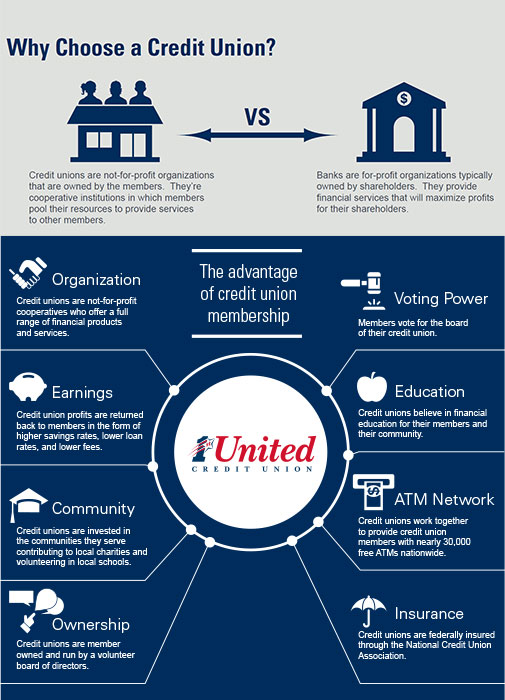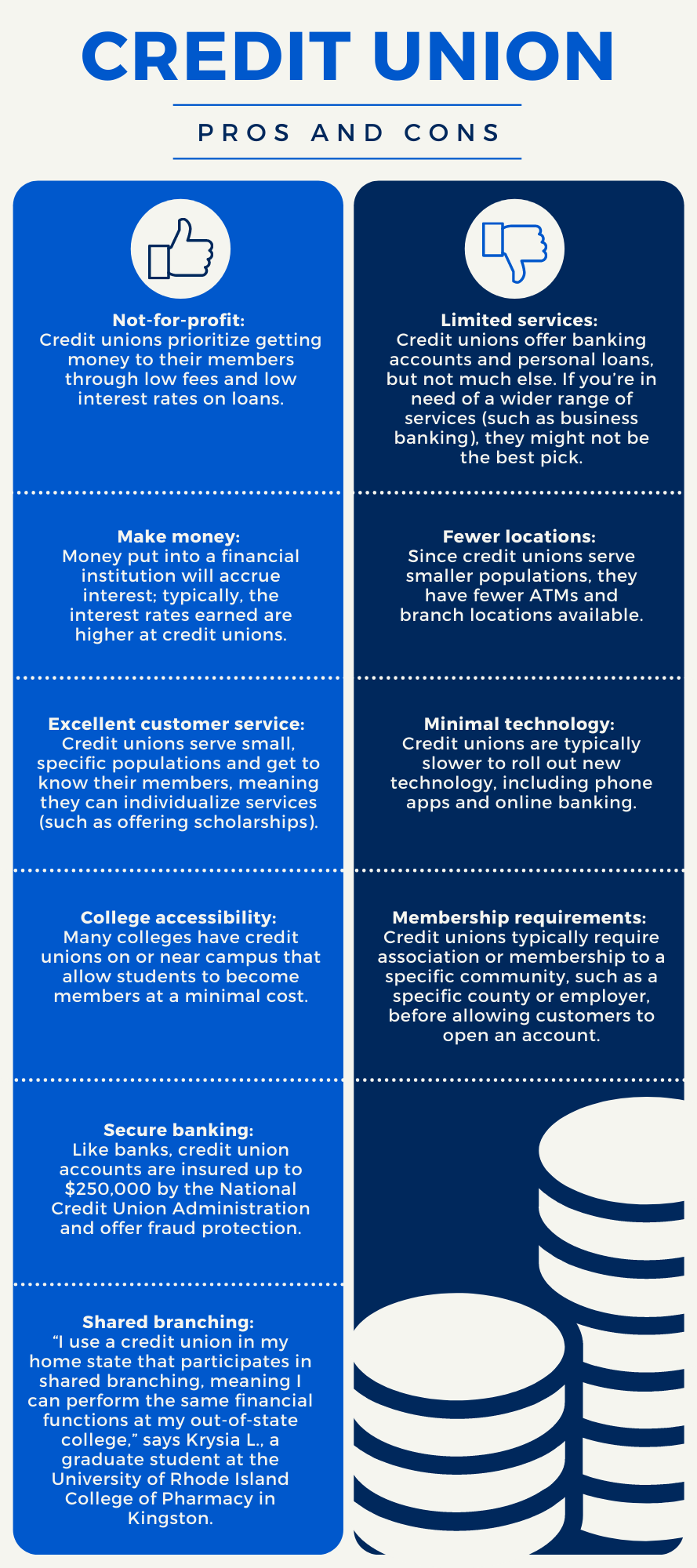Credit Unions in Wyoming: Comprehensive Financial Solutions and Participant Perks
Credit Unions in Wyoming: Comprehensive Financial Solutions and Participant Perks
Blog Article
The Ultimate Overview to Understanding Cooperative Credit Union

Lending institution stand as unique economic entities, rooted in principles of common support and member-driven procedures. Beyond their fundamental worths, comprehending the detailed workings of debt unions includes a much deeper expedition. Unraveling the intricacies of membership eligibility, the advancement of solutions used, and the distinctive advantages they bring needs a comprehensive exam. As we navigate through the ins and outs of cooperative credit union, an informative trip awaits to clarify these member-focused organizations and just how they vary from conventional banks.
What Are Lending Institution?
Lending institution are member-owned economic establishments that supply a series of banking services to their participants. Unlike typical banks, credit unions run as not-for-profit organizations, indicating their primary focus is on offering their participants rather than optimizing revenues. Participants of a credit score union generally share a common bond, such as helping the very same company, coming from the very same neighborhood, or being component of the exact same company.
Among the essential advantages of lending institution is that they commonly offer greater passion prices on financial savings accounts and lower passion prices on fundings contrasted to financial institutions. Hybrid Line of Credit. This is since cooperative credit union are structured to benefit their participants straight, enabling them to pass on their revenues in the type of better rates and less costs. Furthermore, cooperative credit union are understood for their personalized customer support, as they prioritize building relationships with their participants to comprehend their one-of-a-kind monetary requirements and objectives
Background and Advancement of Credit Report Unions
The roots of member-owned financial cooperatives, known today as cooperative credit union, trace back to a time when areas looked for options to traditional financial establishments. The principle of credit scores unions come from the 19th century in Europe, with Friedrich Wilhelm Raiffeisen often attributed as the pioneer of the participating financial activity. Raiffeisen established the very first acknowledged credit report union in Germany in the mid-1800s, emphasizing area support and self-help concepts.
The development of credit scores unions proceeded in The United States and Canada, where Alphonse Desjardins developed the very first credit score union in Canada in 1900. Shortly after, in 1909, the very first united state credit report union was developed in New Hampshire by a group of Franco-American immigrants. These early lending institution run on the essential concepts of shared help, autonomous control, and member possession.
Gradually, cooperative credit union have grown in appeal worldwide due to their not-for-profit framework, concentrate on serving participants, and using competitive economic product or services. Today, cooperative credit union play an essential function in the monetary market, offering accessible and community-oriented financial options for people and companies alike.

Membership and Eligibility Criteria
Subscription at a credit union is typically limited to individuals fulfilling specific eligibility standards based on the establishment's beginning concepts and regulative requirements. Some debt unions may only offer individuals who live or function in a specific location, while others may be customized to employees of a certain business or participants of a particular organization.
Furthermore, lending institution are structured as not-for-profit companies, meaning that their primary goal is to serve their members as opposed to produce earnings for shareholders. This concentrate on member solution frequently find here converts into even more tailored interest, reduced costs, and affordable interest prices on cost savings and lendings accounts. By fulfilling the qualification criteria and ending up being a member of a credit rating union, people can access a variety of economic product or services customized to their particular requirements.
Providers and Products Offered
One of the key aspects that sets credit rating unions apart is the varied array of financial services and products they supply to their members. Credit scores unions usually give typical financial solutions such as cost savings and checking accounts, car loans, and credit cards.
In addition, cooperative credit union often offer practical online and mobile financial choices for members to conveniently handle their financial resources. They might offer perks such as common branching, enabling members to access their accounts at other lending institution across the country. Some credit unions also give insurance policy products like home, vehicle, and life insurance policy to assist participants secure their assets and enjoyed ones.

Advantages of Banking With Cooperative Credit Union
When considering banks, checking out the benefits of banking with lending institution reveals one-of-a-kind benefits for participants looking for customized service and competitive prices. One significant advantage of lending institution is their emphasis on customized customer support. Unlike big financial institutions, cooperative credit union are member-owned and focus on structure strong partnerships with their members. This implies that debt union team Click Here typically have a much deeper understanding of their participants' monetary requirements and can supply customized solutions to assist them accomplish their goals. Additionally, cooperative credit union are known for providing affordable rate of interest on lendings and cost savings accounts. Due to the fact that they are not-for-profit organizations, lending institution can commonly give reduced financing rates, higher cost savings prices, and lower charges compared to typical financial institutions. This can cause considerable expense savings for participants with time. In general, banking with a cooperative credit union can offer an extra personalized, affordable, and member-centric economic experience.
Verdict
In final thought, credit history unions stand out as member-owned financial organizations that focus on serving their members over taking full advantage of revenues. With origins dating back to 19th century Europe, credit history unions adhere to concepts of common help and member ownership.
Credit scores unions are member-owned financial establishments that provide an array of banking solutions to their members. The concept of credit rating unions stem in the 19th century in Europe, with Friedrich Wilhelm Raiffeisen typically attributed as the pioneer of the participating banking movement.The advancement of credit history unions continued in North America, where Alphonse Desjardins established the first credit score union in Canada in 1900. Credit rating unions usually provide traditional banking services such as savings and checking accounts, loans, and credit cards.When taking into consideration financial see page establishments, exploring the benefits of financial with debt unions reveals one-of-a-kind advantages for participants seeking individualized solution and affordable prices.
Report this page